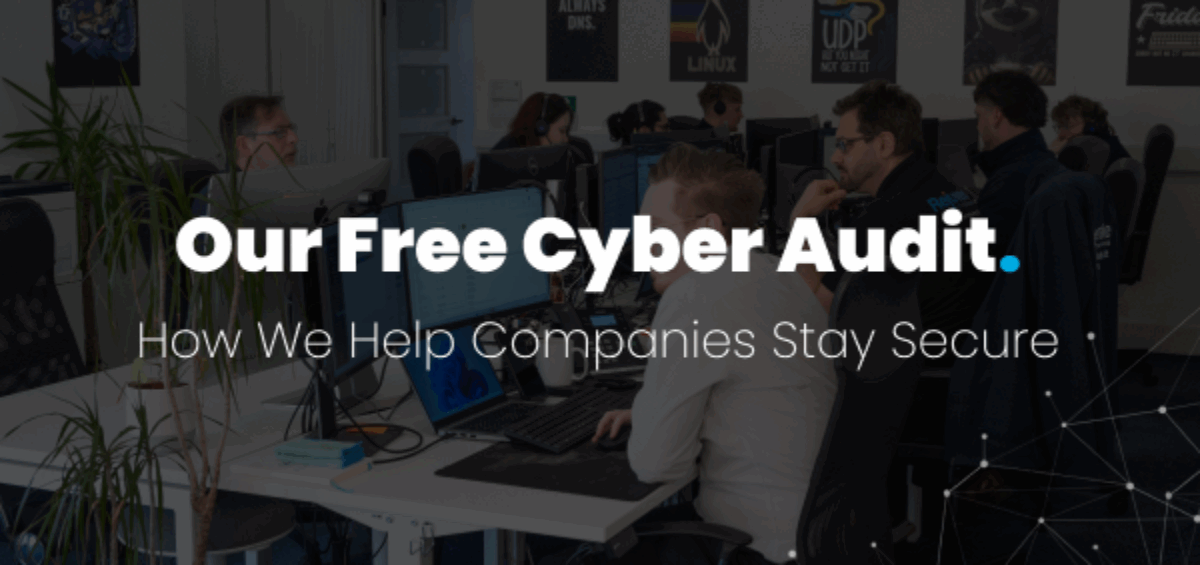The Cybersecurity Breaches Survey 2023 found that 32% of businesses experienced a cyber threat within the previous year. For Small and Medium-sized Enterprises (SMEs), the risk is even greater. Limited resources, expired firewalls, and a lack of robust backup strategies make them prime targets for cybercriminals.
Hence, a cybersecurity audit is essential. It exposes the weak points in your IT infrastructure so you can fix them before they are exploited. The Rejuvenate IT Cybersecurity Audit is designed specifically for SMEs and identifies vulnerabilities that you might not even realise exist.
In this guide, we’ll break down the importance of Rejuvenate IT Cybersecurity Audit. You’ll also learn how the process works and explore real-world examples of how Rejuvenate IT has helped companies remain secure.
Understanding Rejuvenate IT’s Cybersecurity Audit
Rejuvenate IT Cybersecurity Audit starts with a thorough review of your IT environment. The process examines security controls, internal processes, and compliance with legal frameworks. A detailed analysis highlights gaps in areas where your security lacks and outlines immediate steps to fix the weak spots.
Instead of waiting for a breach to expose weaknesses, Rejuvenate IT cybersecurity audits highlight the risks early. It protects your business from cyberattacks before they cause serious financial and reputational damage. Proactive action is necessary as cyber crimes continue to grow. Research shows that almost half of UK businesses have experienced at least one cyberattack in the past five years, resulting in £44bn of lost revenue.
5 Reasons Why You Need to Invest in Rejuvenate IT’s Cybersecurity Audit
From unsupported firmware and software to stagnant cybersecurity programs, most SMEs share common vulnerabilities. A cybersecurity audit reveals these weak spots and provides a tailored security action plan for your business. Here is why you should consult Rejuvenate IT to assess your current cybersecurity measures:
1. Reduce Vulnerabilities
Cybercriminals thrive on overlooked weaknesses, which is why cybersecurity audits address them first. With advanced tools like data sensitivity analysis and intrusion tests, it identifies potential threats that could harm your business.
The process goes beyond surface checks. It involves digging into your business’s data, network, physical, operational, and system security, as well as, the current software system. By identifying issues like weak authentication methods and obsolete security policies, audits provide an opportunity to address these issues proactively.
2. Meet Compliance Standards
Global cybersecurity standards, such as the GDPR, HIPAA, PCI DSS, ISO 27001, SOC 2, and NIST, establish stringent rules and regulations for protecting sensitive data. Nearly 88% of businesses spend over $1 million on GDPR compliance alone, which shows the importance of meeting compliance standards.
Businesses that fail to comply with these standards face a serious threat of cyberattacks, as well as legal repercussions. The Rejuvenate IT cybersecurity audit assesses your systems and provides recommendations for improvements against these compliance benchmarks.
3. Build Trust
Research on public perception of cybersecurity reveals that 85% of consumers are hesitant to do business with a company that has inadequate security practices. By conducting a cybersecurity audit, you demonstrate a proactive approach to data protection.
This sends a strong signal to stakeholders and customers that your business values transparency and responsibility. It also supports your journey towards achieving Cyber Essentials certification, which showcases your commitment to protecting sensitive information.
4. Long-term Cost Saving
The average cost of a single breach for UK businesses is £1,205. Add hidden costs such as lost productivity, downtime, and reputational damage, and the price rises even higher.
Rejuvenate IT cybersecurity audit detects the vulnerabilities early, so you can address them and prevent high financial losses. Think of it as insurance. While it may seem like an expense, it ultimately protects your company’s future.
5. Optimise Employee Training
Stanford research reveals that 88% of data breaches are caused by human error. Thus, employees are one of the most common entry points for attackers. A cybersecurity audit identifies gaps in staff awareness and training.
It identifies how employees interact with sensitive data, how consistently policies are followed, and where awareness is falling short. Addressing these findings by educating your workforce on how to detect and mitigate common threats builds confidence and compliance.
Rejuvenate IT’s Cybersecurity Audit: How it Works
One of the biggest advantages of the Rejuvenate IT Cybersecurity Audit is that the process is simple, yet highly impactful. Here’s how it works:
1. Audit Booking
The process begins by scheduling a free audit at a time that works for you. Our team ensures the booking is flexible and hassle-free, so you can manage it without disrupting your business.
2. System Assessment
Once scheduled, our specialists take a close look at your IT infrastructure, from networks and devices to processes and security policies. This in-depth review enables us to identify vulnerabilities, including outdated software, untested backups, and weak password practices.
3. Risk Report
Finally, you’ll receive a clear, jargon-free report outlining the findings. The report highlights the risks and provides actionable recommendations to remove them. You can implement the suggested practices internally or request Rejuvenate’s technical support.
3 Real-World Examples of Rejuvenate IT’s Cybersecurity Audit
Rejuvenate IT cybersecurity audits have helped several businesses with their security. Here are examples of three businesses where Rejuvenate IT has made a huge difference:
1. My Fibre Audit
My Fibre, a regional broadband provider, used the audit to achieve Cyber Essentials certification. The audit recommended moving away from GoDaddy hosting and migrating to Business Premium and Microsoft 365 F3 licences. With these improvements, the company was able to get Cyber Essentials certification and boost compliance and security.
2. bigHead Audit
bigHead struggled with outdated cybersecurity processes, and the audit uncovered critical gaps in operating system updates. To resolve these issues, Rejuvenate IT migrated the company’s servers to secure datacenter facilities and implemented a modern network infrastructure. These improvements significantly reduced vulnerabilities across the organisation while boosting overall productivity.
3. Beagle Aircraft Audit
As an engineering company, Beagle Aircraft wanted to upgrade to a managed IT service provider with greater expertise. The audit revealed outdated hardware and software that posed serious risks.
Rejuvenate’s team migrated its servers to modern versions of Windows servers. Their network infrastructure and backup were also updated, and they were moved to a cloud-hosted VoIP system. These changes strengthened their security and improved the overall business performance.
Why Choose Rejuvenate IT’s Cybersecurity Audit
The issue with SMEs is that their vulnerabilities may be missed due to a lack of dedicated IT teams and financial resources. However, by choosing Rejuvenate IT’s cybersecurity audit, you get a practical action plan that allows you to strengthen your defensive wall.
Whether you want to upgrade to a modern, more secure service provider or meet compliance standards, Rejuvenate IT is your answer.
Call us at (01202 237273) or email [email protected] to book your complimentary cybersecurity audit.
FAQs
1. How frequently should cybersecurity audits be conducted?
Cybersecurity audits should be conducted at least once a year. However, high-risk industries, such as healthcare, or those that have recently undergone IT changes may benefit from more frequent audits.
2. What are the different types of cybersecurity audits?
Cybersecurity audits can be internal or external, based on whether they’re conducted by the internal IT team or a third-party service provider. Both the internal and external audits may be classified into three main types:
- Compliance Audits: They focus on legal compliance standards and whether your current security process meets them.
- Penetration Audits: Use attack simulations to find vulnerabilities in your system.
- Risk-Assessment Audits: Detect risk of potential cyber attacks and determine their effect on your business.











